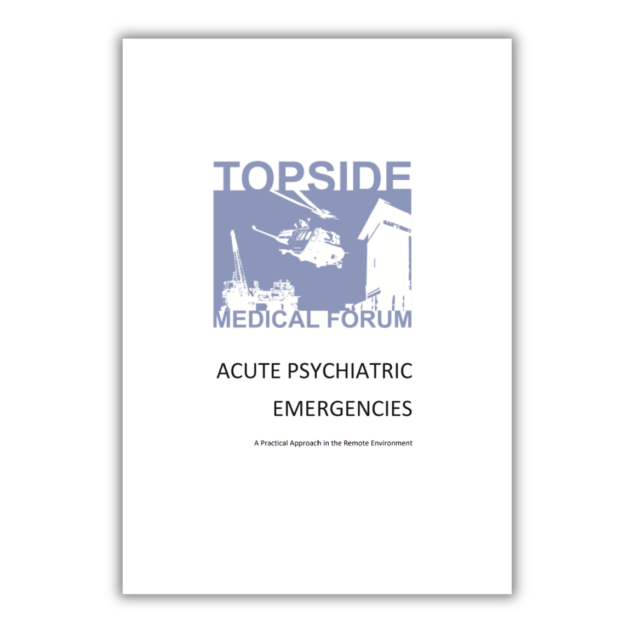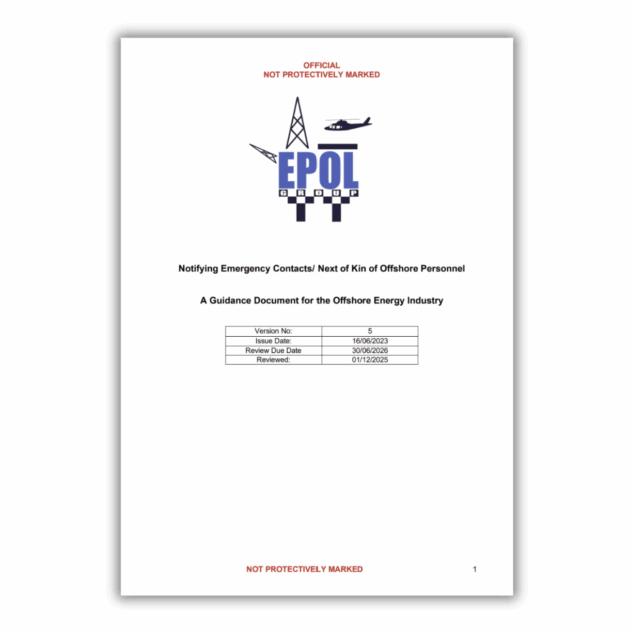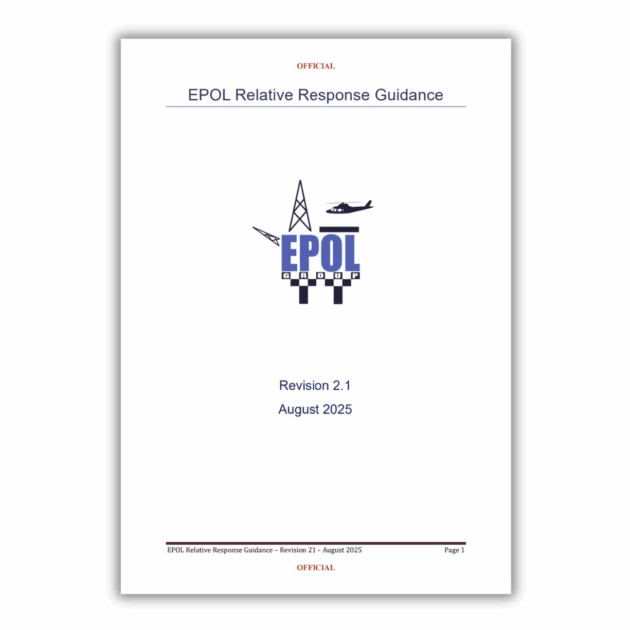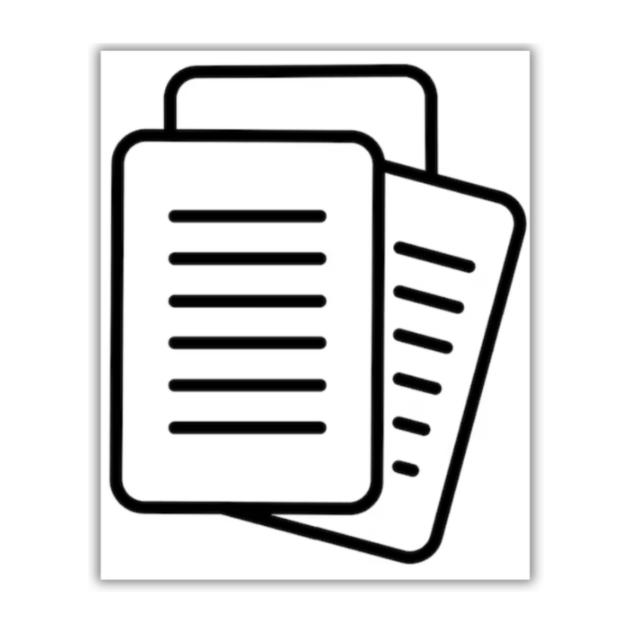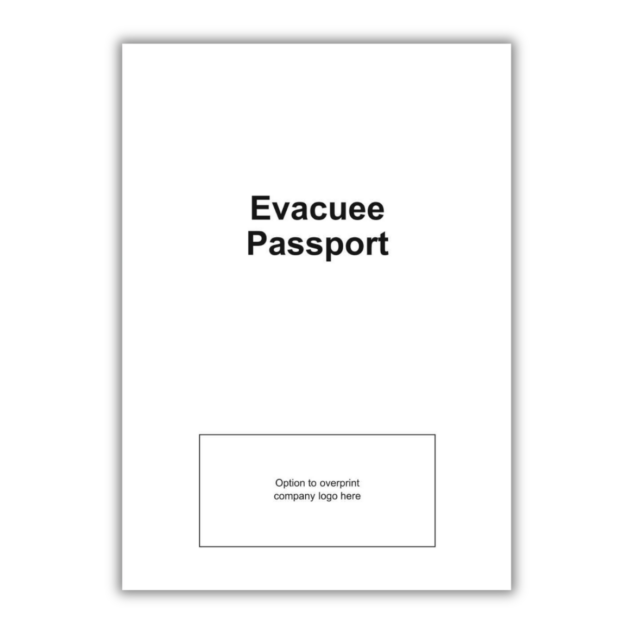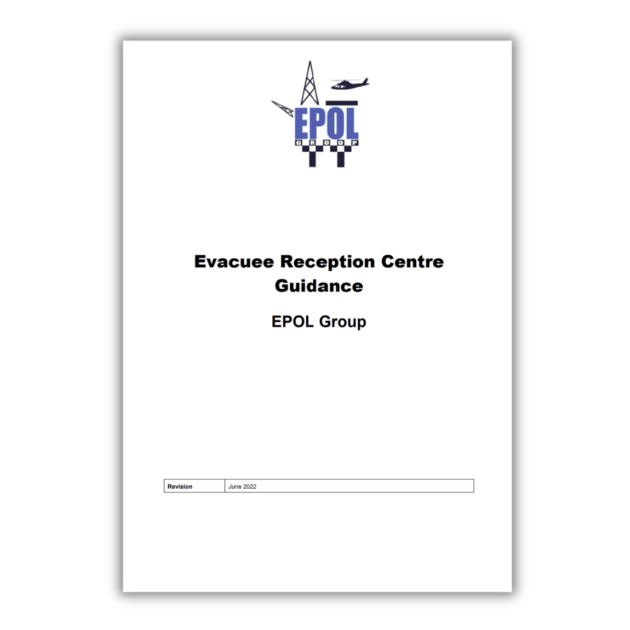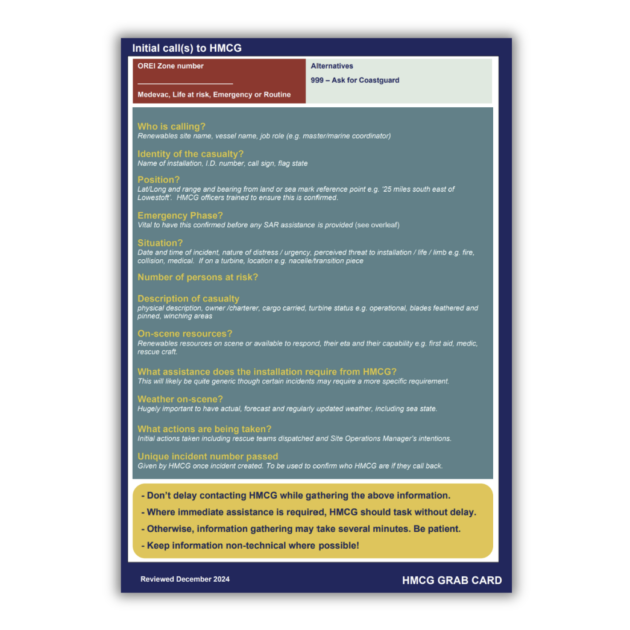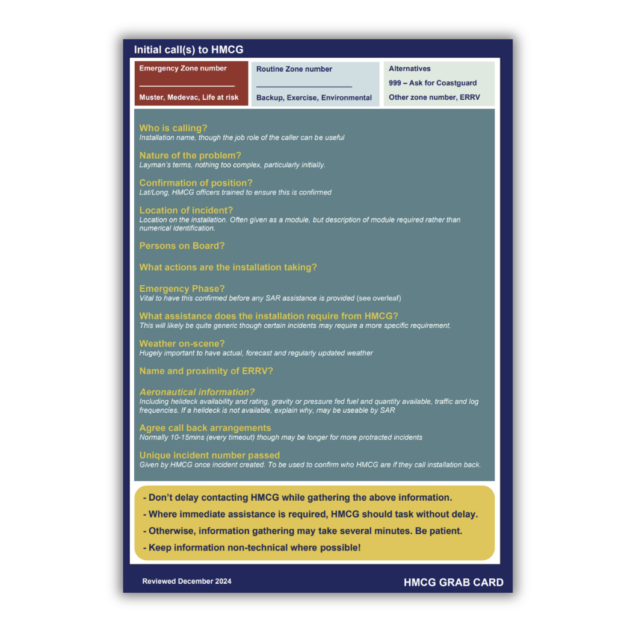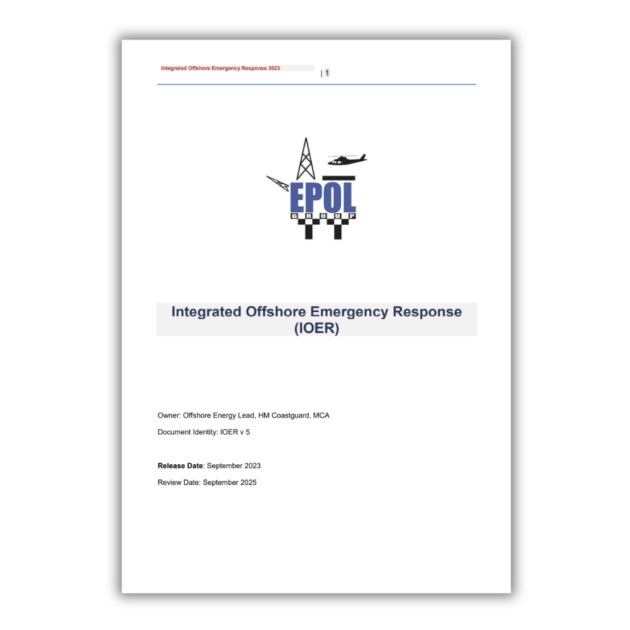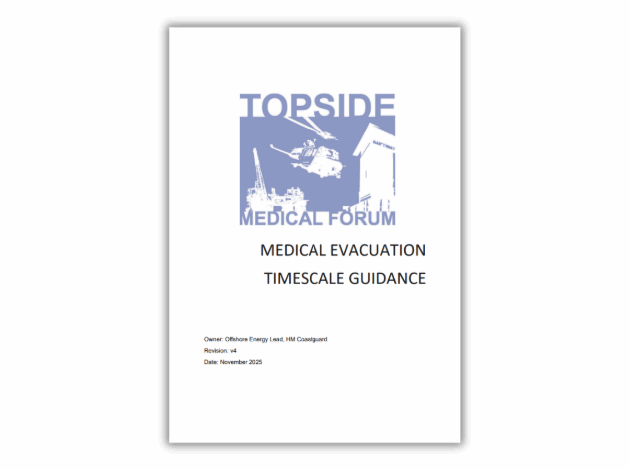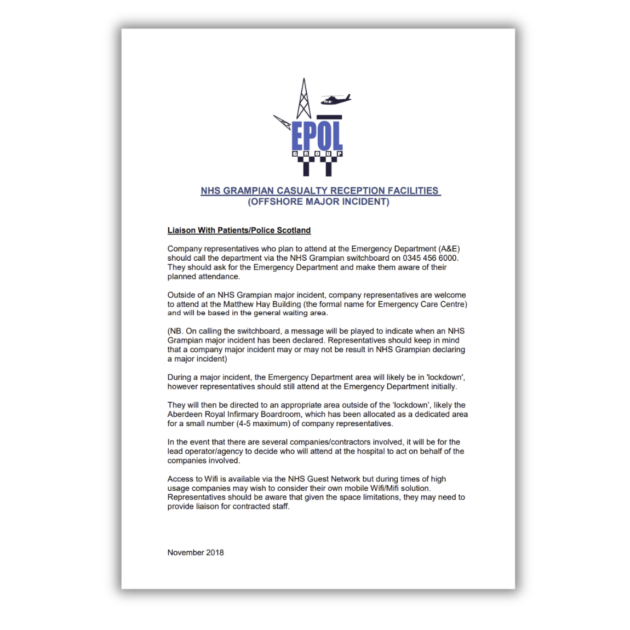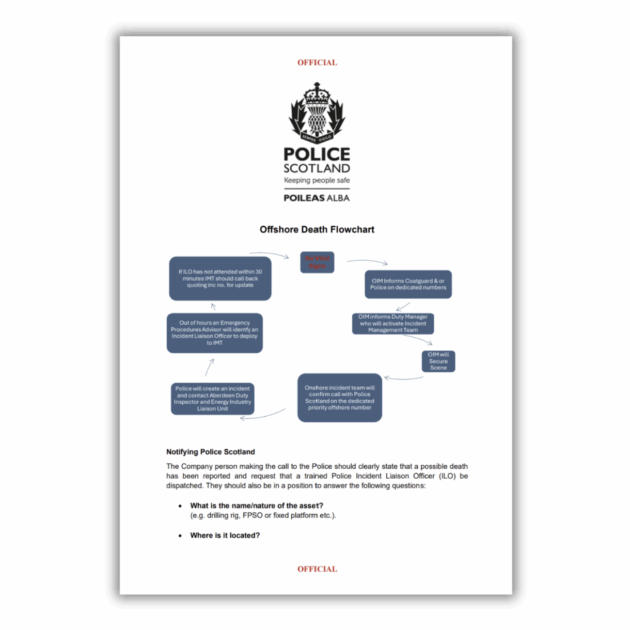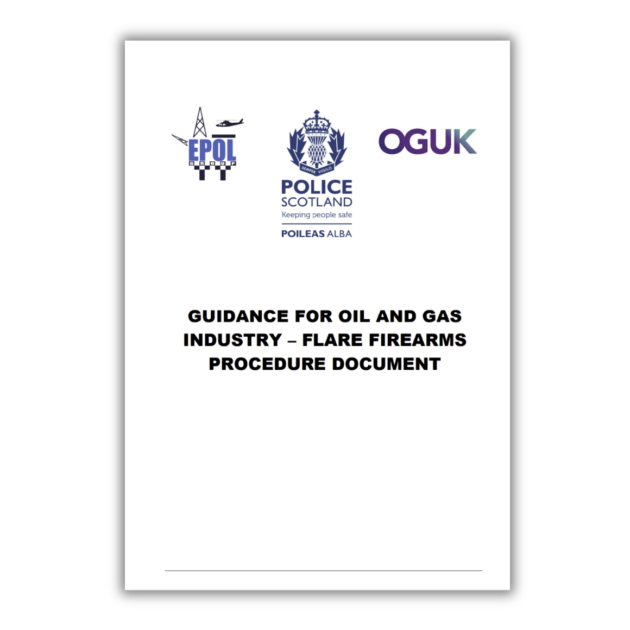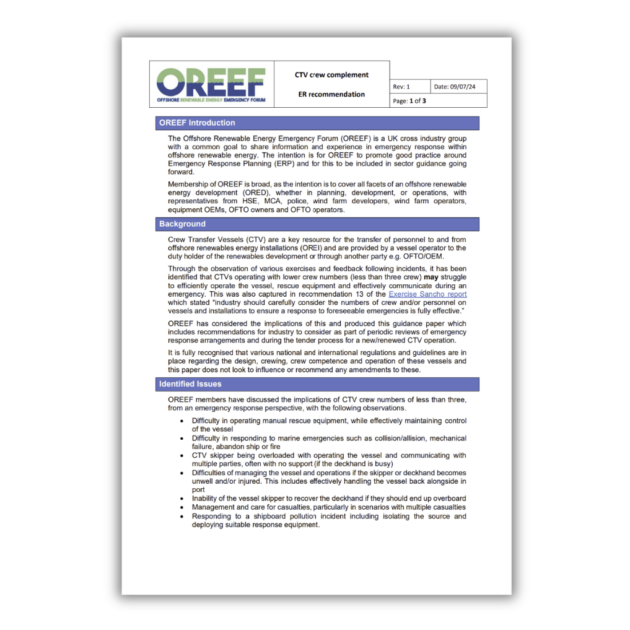-
Published on 6 Oct 2024
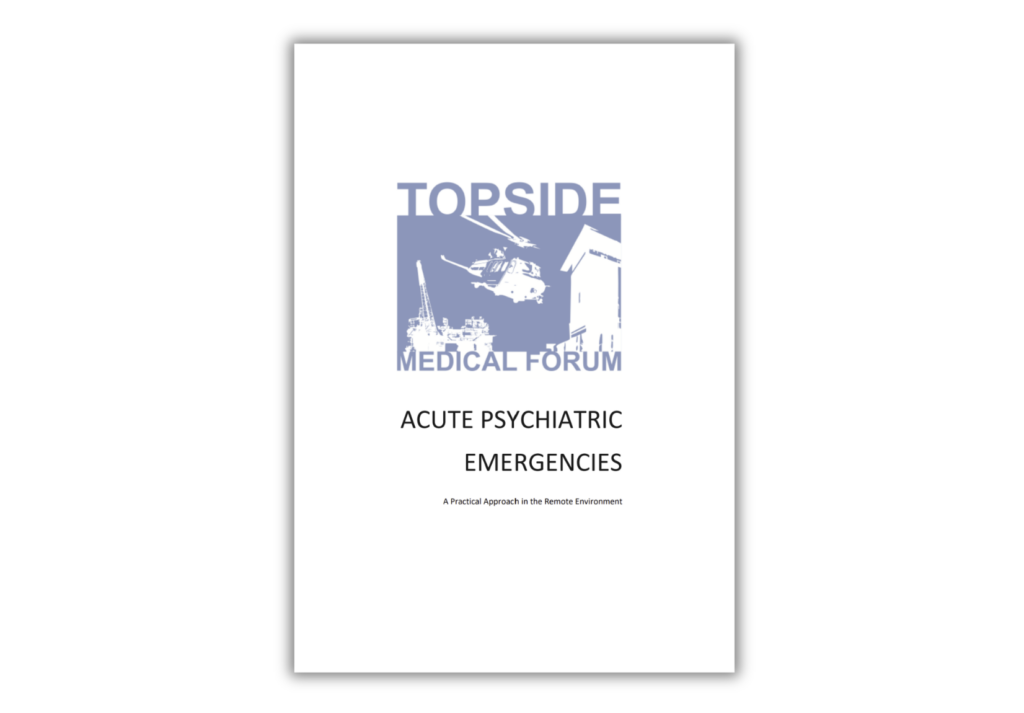 FREE
FREEThe Acute Psychiatric Emergencies guidance provides essential protocols for managing mental health crises in the offshore environment. Developed by the Topside Medical Forum (TMF), this document addresses the unique challenges of managing psychiatric emergencies in remote settings, ensuring the safety of both the patient and the staff involved.
Quick View -
Published on 6 Oct 2024
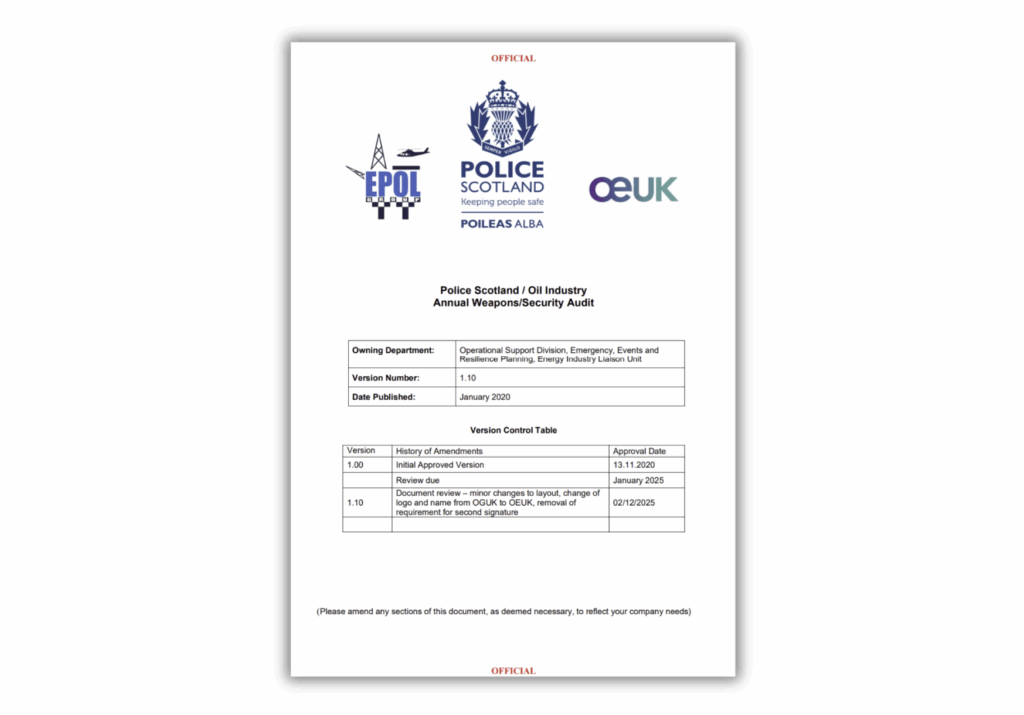 FREE
FREEThe Annual Weapons and Security Audit Submission is a critical document for oil and gas companies that manage flare ignition firearms and ammunition for offshore operations. It is designed to ensure compliance with Police Scotland’s firearms licensing requirements and to confirm the secure management, storage, and use of firearms on offshore installations.
Quick View -
Published on 3 Oct 2024
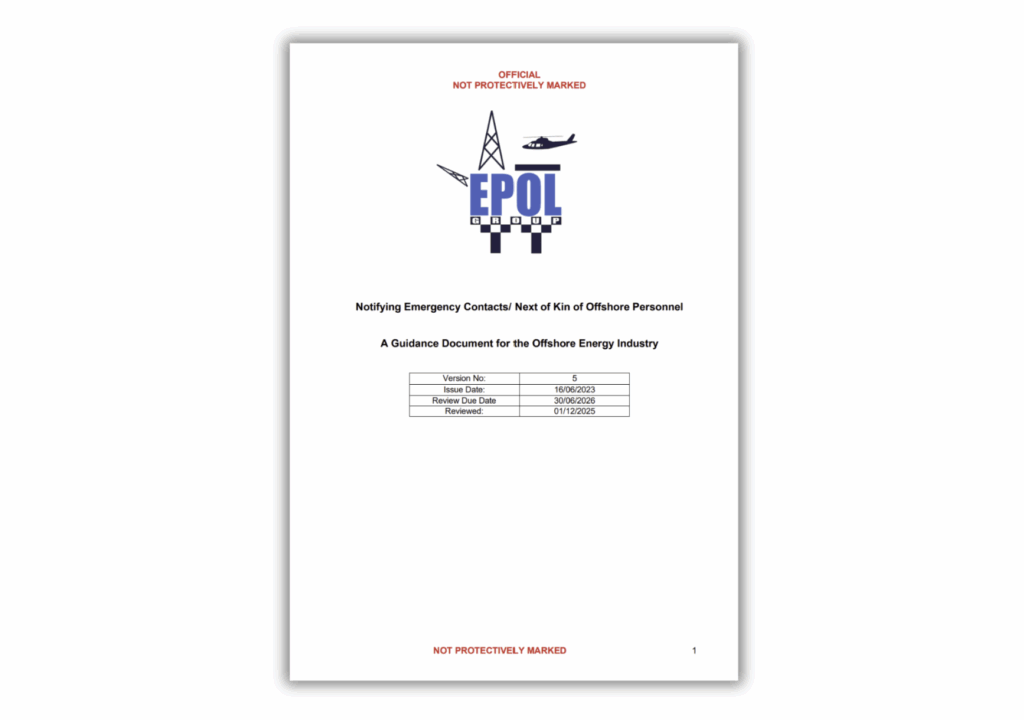 FREE
FREEEnsure your company is prepared to handle the sensitive process of notifying emergency contacts and next of kin with the EPOL Notifying Emergency Contacts and Next of Kin Guidance. This document provides essential procedures for responding to offshore incidents, ensuring accurate and timely communication with families in the event of illness, injury, or fatalities.
Quick View -
Published on 6 Oct 2024
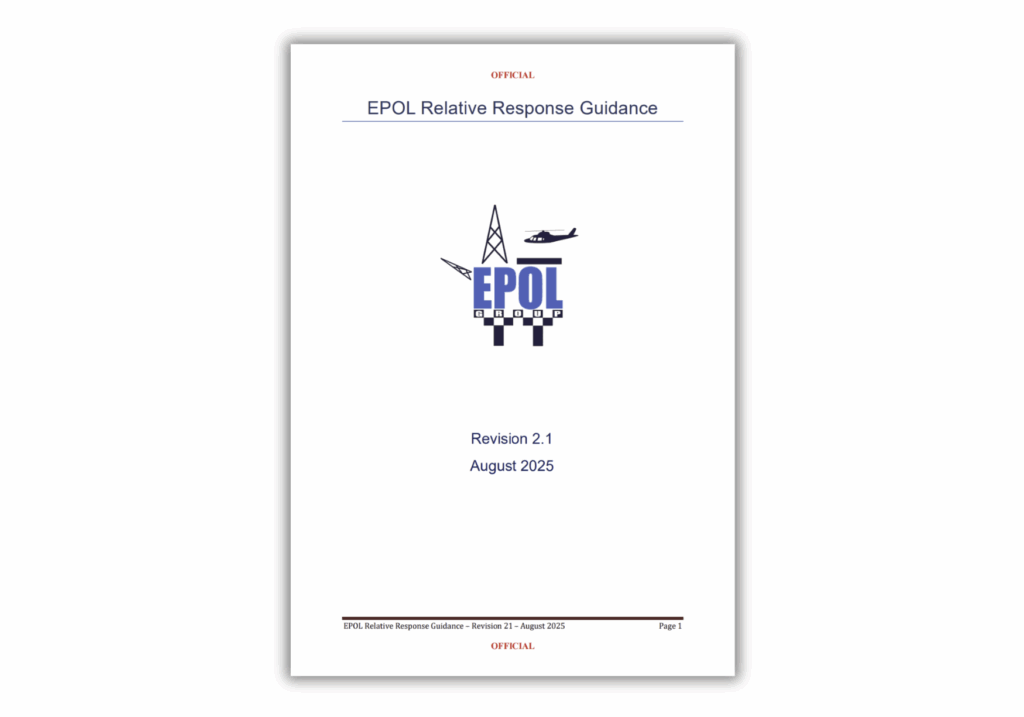 FREE
FREEThe EPOL Relative Response Guidance provides essential protocols for handling calls from concerned family members and the public in the event of offshore incidents. Developed by the Emergency Preparedness Offshore Liaison (EPOL) Group, this guidance ensures a consistent, organized approach for relative responders across the UK oil and gas sector.
Quick View -
Published on 6 Oct 2024
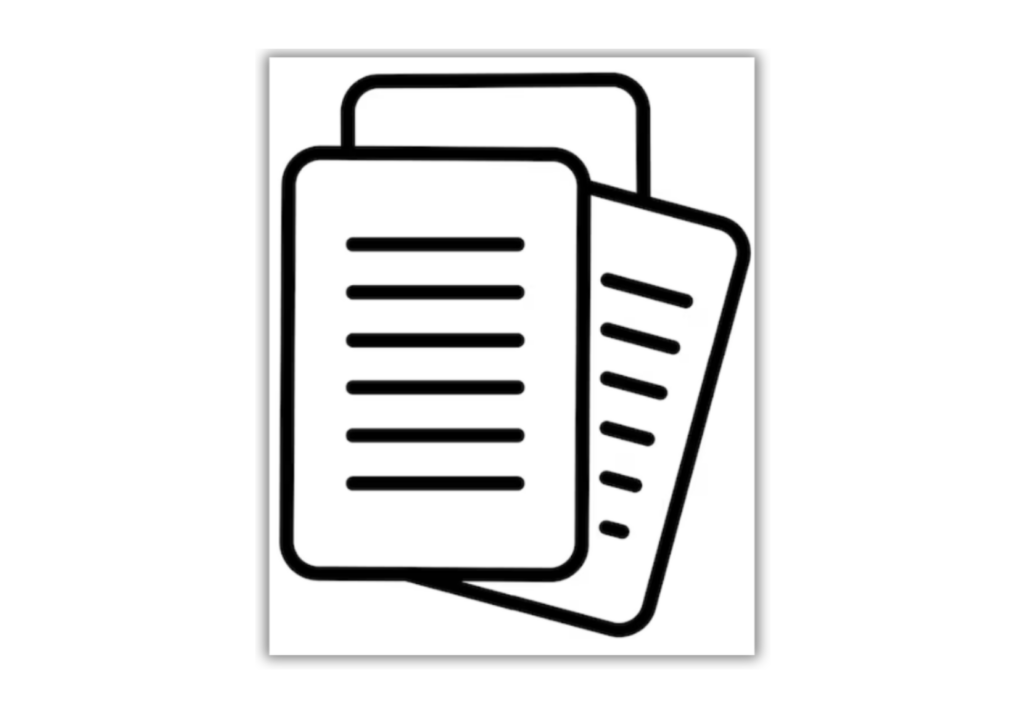 FREE
FREEThis comprehensive suite of forms and logs is designed to ensure organized and efficient management during offshore evacuations and emergency situations. It enables detailed tracking of evacuees, family and friends, and all key actions taken by personnel during an emergency response. These documents facilitate clear communication, safety protocols, and support services to ensure proper care for evacuees and their families.
Quick View -
Published on 6 Oct 2024
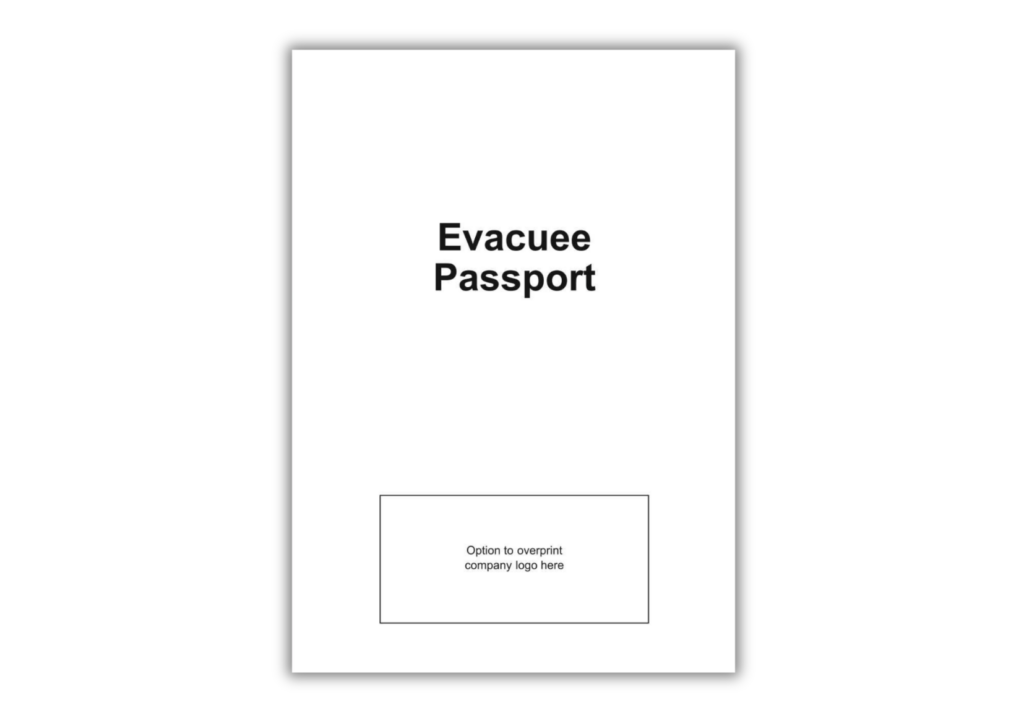 FREE
FREEThe Evacuee Passport document provides a structured process for managing evacuees in offshore energy incidents. It ensures that each step in the evacuation process is recorded and verified, providing a clear and organized reference for both evacuees and reception centre staff.
Quick View -
Published on 6 Oct 2024
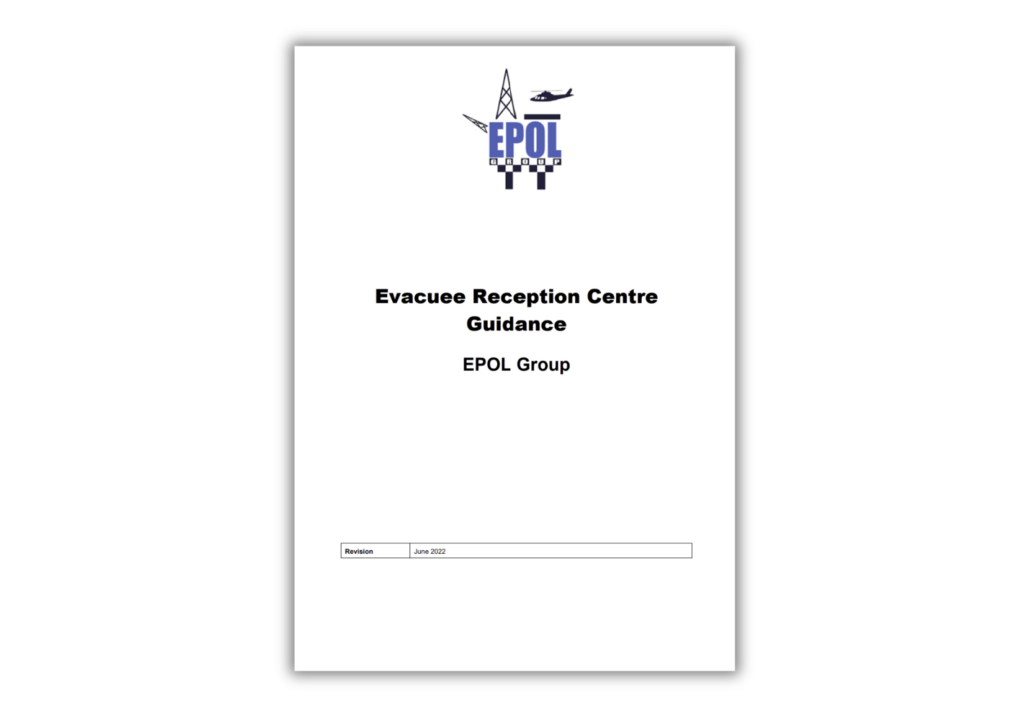 FREE
FREEThe Evacuee Reception Centre (ERC) Guidance is a comprehensive document developed by the Emergency Preparedness Offshore Liaison (EPOL) Group, providing clear processes for managing evacuees during offshore incidents. This guidance outlines the steps needed to establish and operate an ERC, ensuring the welfare and safety of evacuees and facilitating coordination with Police Scotland when necessary.
Quick View -
Published on 19 Dec 2024
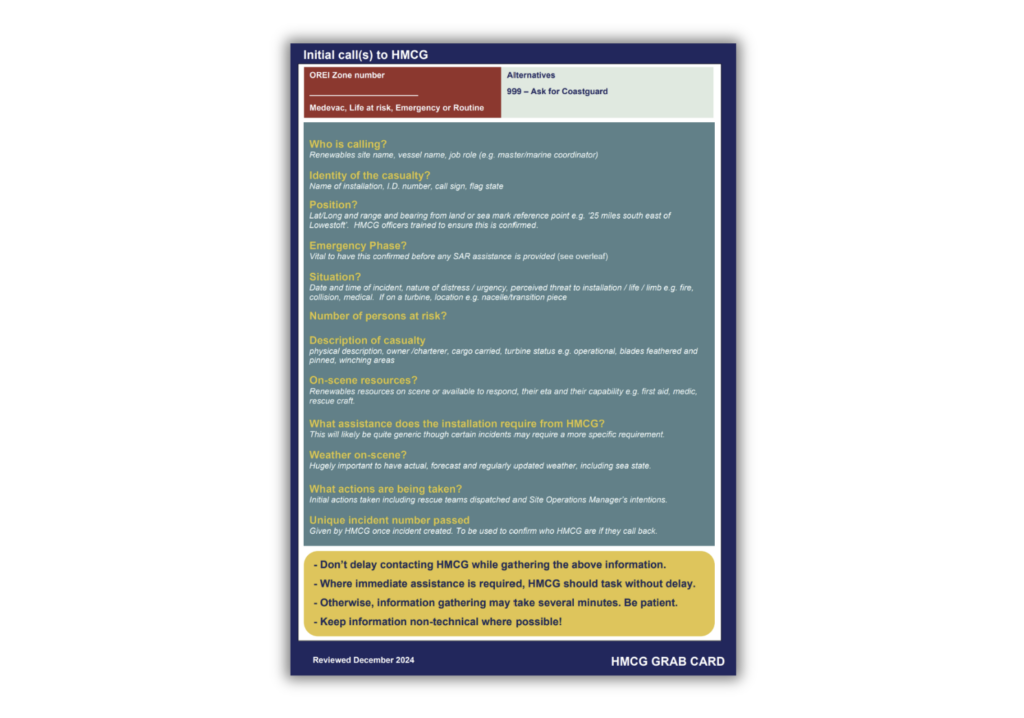 FREE
FREEThe HMCG Grab Card for Renewables is a vital resource for offshore renewable energy operators, providing a clear communication framework for contacting HM Coastguard (HMCG) during emergencies. Tailored to the unique needs of the renewable sector, it ensures efficient coordination of Search and Rescue (SAR) efforts to safeguard personnel and assets.
Quick View -
Published on 19 Dec 2024
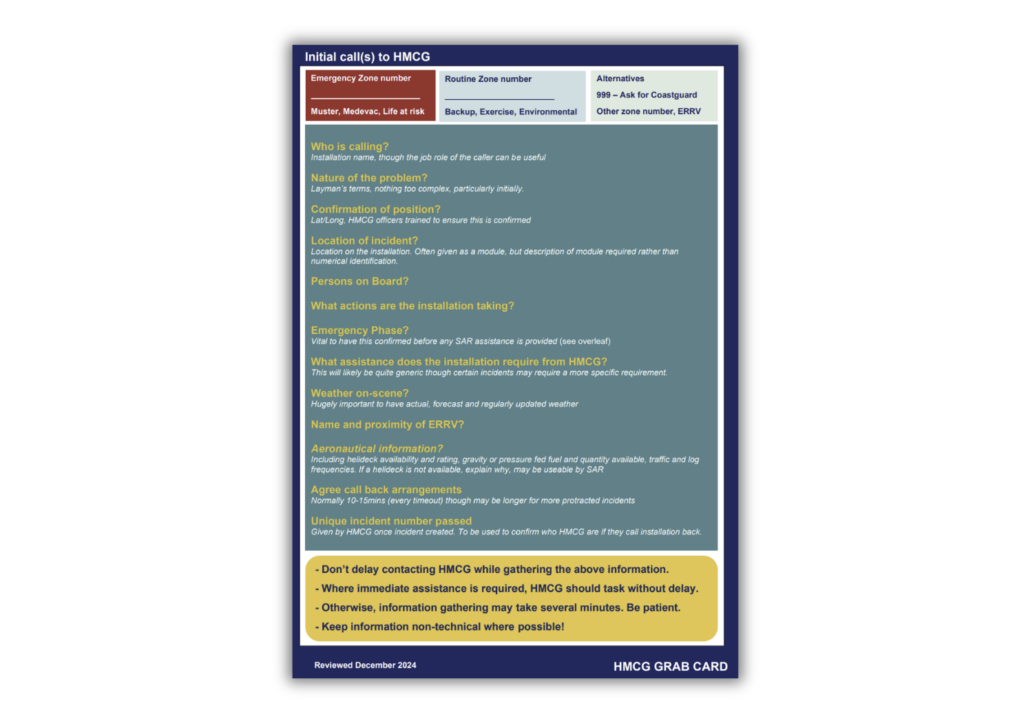 FREE
FREEThe HMCG Grab Card for Oil and Gas provides a structured framework for offshore installations to communicate effectively with HM Coastguard (HMCG) during emergencies. Designed to streamline Search and Rescue (SAR) operations, this guidance ensures critical information is shared accurately and efficiently, enabling a swift and coordinated response.
Quick View -
Published on 6 Oct 2024
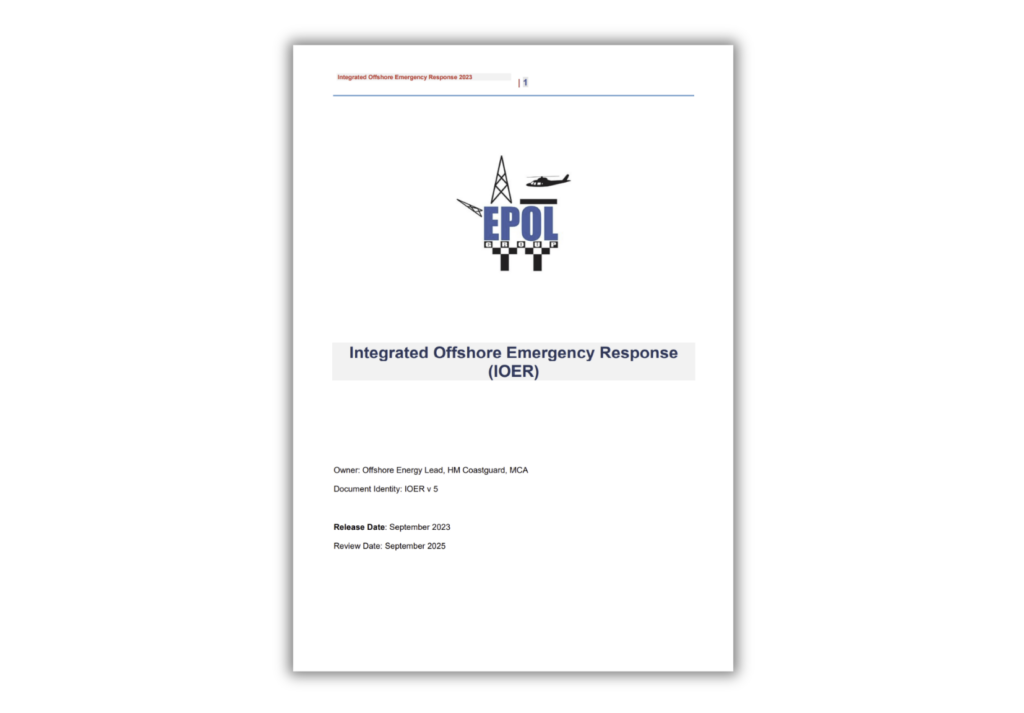 FREE
FREEThe Integrated Offshore Emergency Response (IOER) Guidelines provide comprehensive procedures for Search and Rescue (SAR) in offshore oil and gas incidents. Developed by HM Coastguard and the Offshore Emergency Response Working Group, these guidelines are essential for ensuring effective coordination between national SAR services, the offshore industry, and emergency responders.
Quick View -
Published on 1 Dec 2025
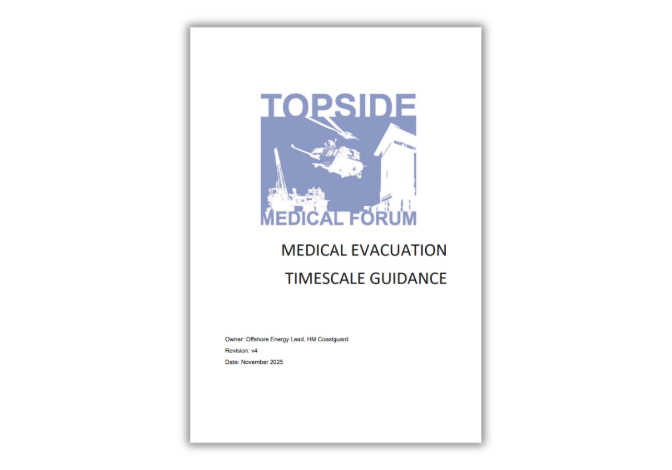 FREE
FREEThe Medical Evacuation Timescale Guidance provides crucial instructions for topside doctors in the offshore energy industry when requesting Search and Rescue (SAR) resources from HM Coastguard for medical evacuations. The document categorizes the severity of illness or injury based on urgency and outlines the appropriate timescales for evacuation.
Quick View -
Published on 6 Oct 2024
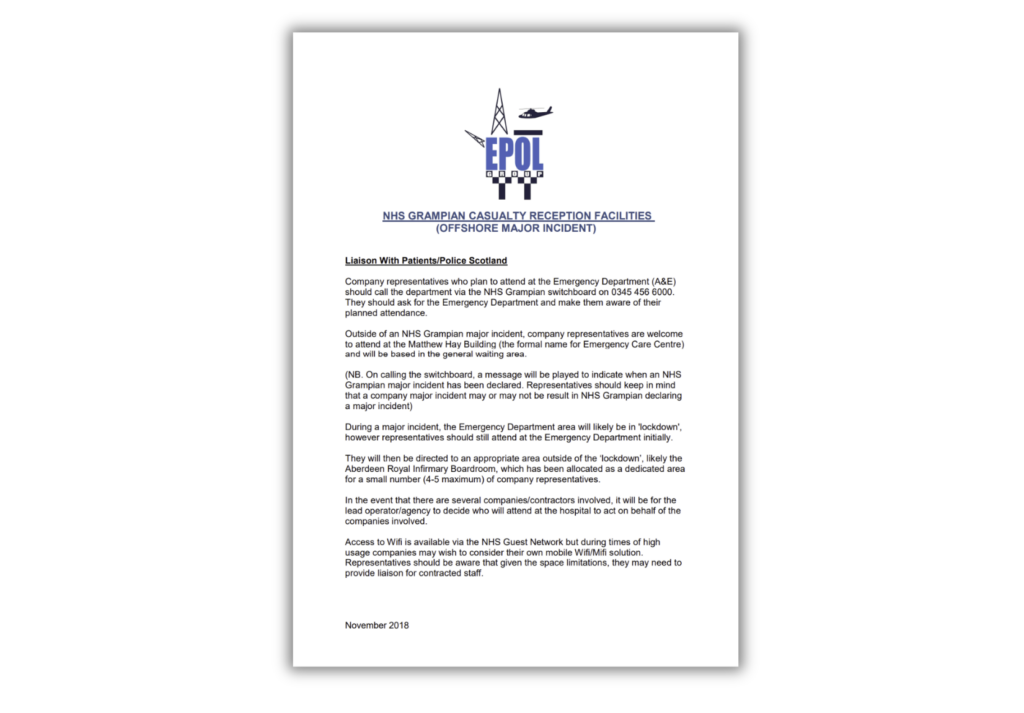 FREE
FREEThis essential guide provides clear protocols for managing company representatives and families during offshore major incidents at NHS Grampian facilities. The document offers step-by-step instructions on coordinating with NHS Grampian, Police Scotland, and other agencies during an emergency.
Quick View -
Published on 6 Oct 2024
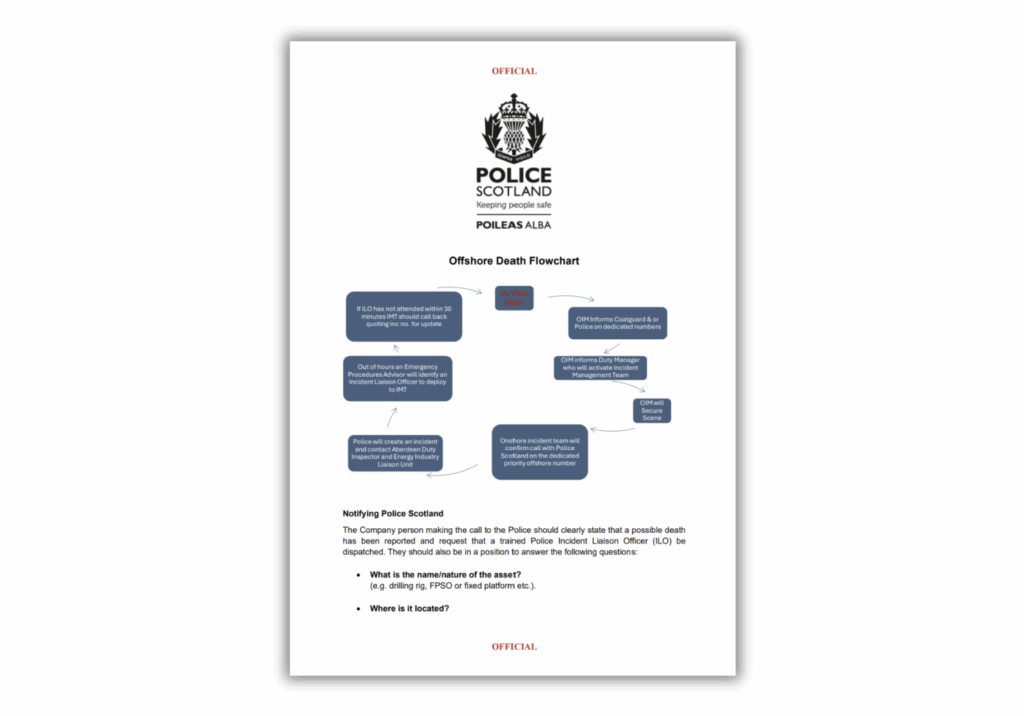 FREE
FREEThe Offshore Death Notification Flowchart provides a clear, step-by-step process for handling notifications in the event of a death offshore. It outlines the required communication between offshore and onshore teams, as well as coordination with Police Scotland and other relevant authorities. This flowchart ensures that all involved parties follow a consistent and efficient procedure in handling sensitive death notifications.
Quick View -
Published on 6 Oct 2024
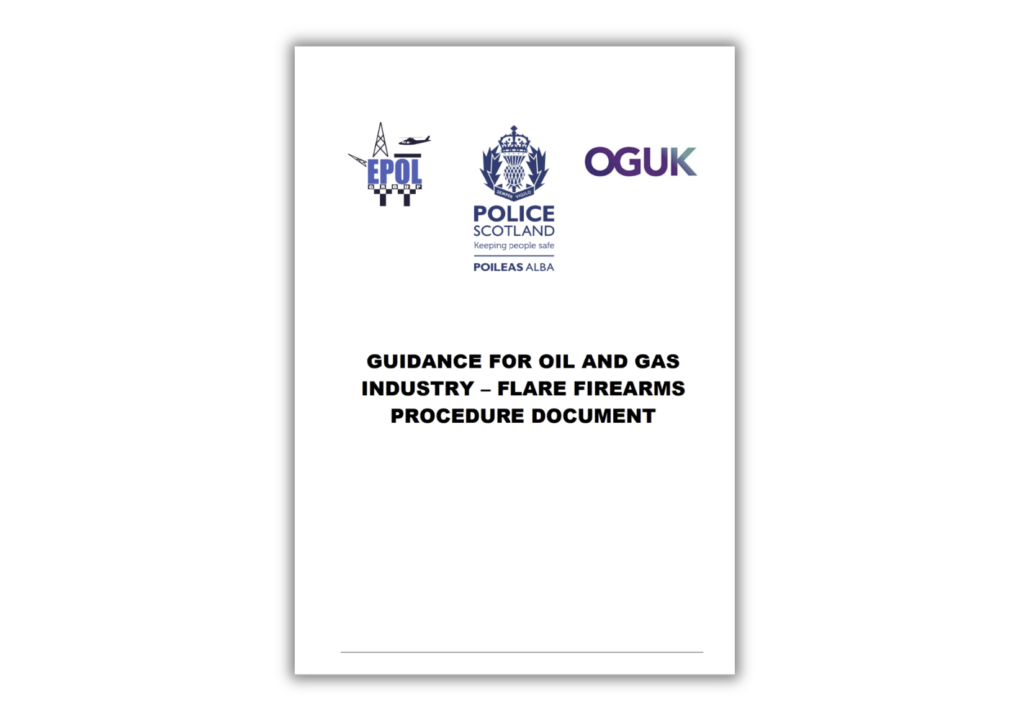 FREE
FREEThe Flare Firearms Procedure Document is a comprehensive guide developed for the oil and gas industry, outlining the legal and operational procedures for the safe management, transportation, and use of firearms and ammunition for flare ignition. It ensures compliance with UK firearms laws and best practices in handling firearms on offshore installations.
Quick View -
Published on 4 Nov 2024
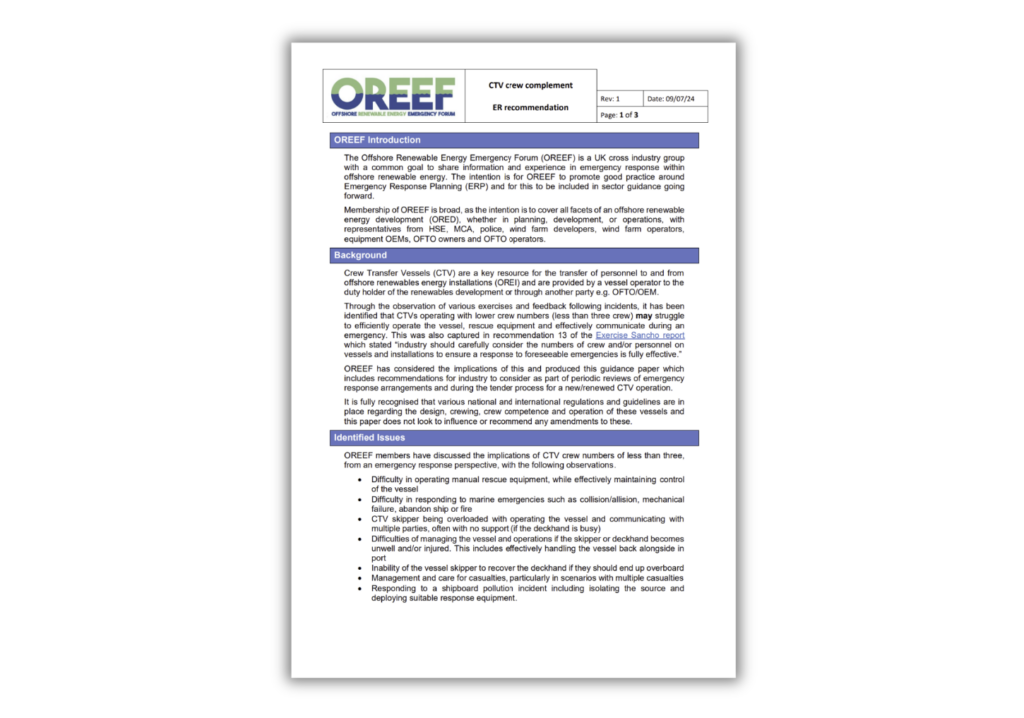 FREE
FREEThe OREEF Crew Transfer Vessel (CTV) Crew Recommendations document provides essential guidance for offshore renewable energy operators on the optimal crew size for CTVs to enhance safety and emergency response capabilities. This guidance, developed by the Offshore Renewable Energy Emergency Forum (OREEF), addresses the challenges of operating CTVs with fewer than three crew members, emphasizing the need for sufficient staffing to manage vessel control, communication, and emergency response in offshore environments.
Quick View -
Published on 6 Oct 2024
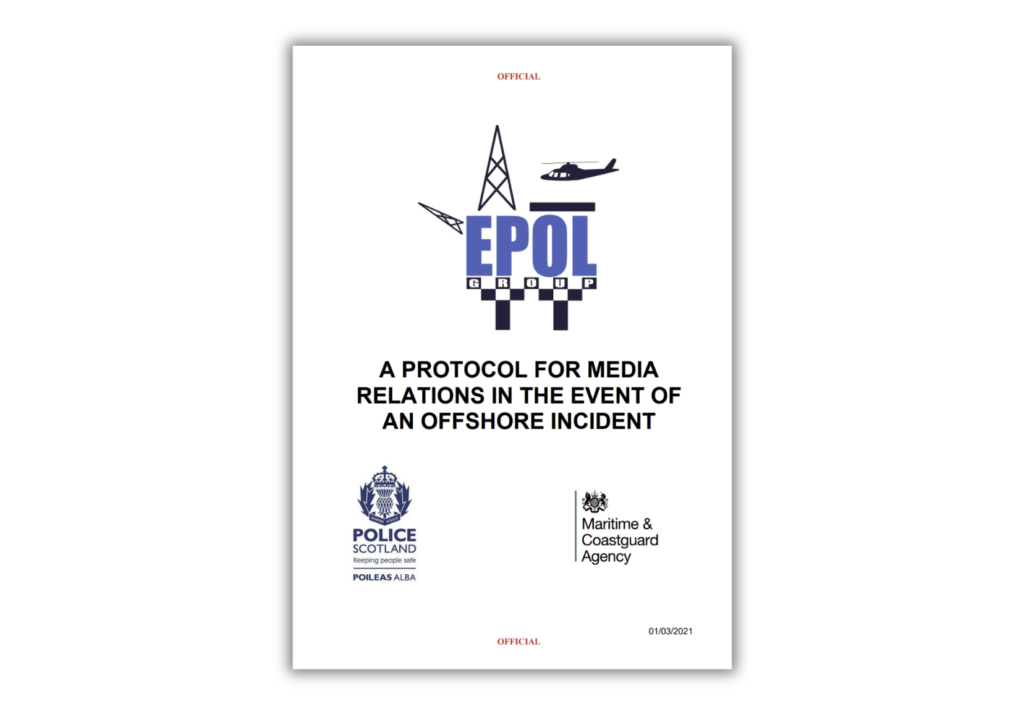 FREE
FREEThe Protocol for Media Relations in the Event of an Offshore Incident, developed by the Emergency Preparedness Offshore Liaison (EPOL) Group, provides a structured approach to managing media communications during offshore emergencies. It ensures coordinated, timely, and accurate information delivery by all responding agencies.
Quick View


